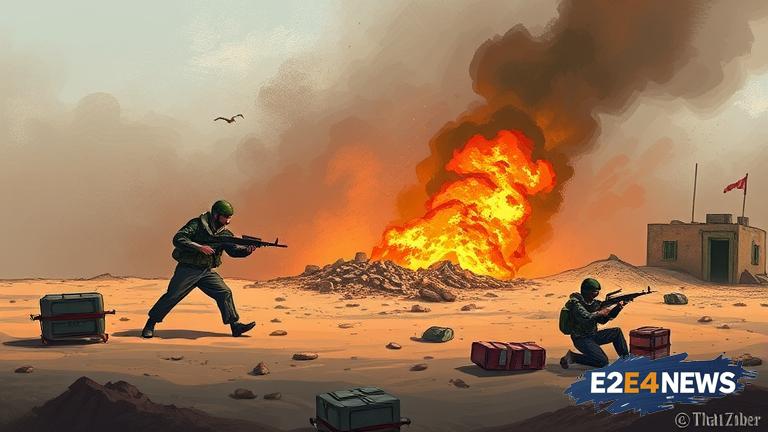Israel has announced a tactical pause in its ongoing conflict with Gaza, sparking widespread speculation about the motivations behind this sudden move. The decision comes amidst mounting international pressure, with many countries calling for a ceasefire to prevent further civilian casualties. The Israeli government has stated that this pause is intended to allow for a reassessment of its military strategy and to explore diplomatic channels for a potential resolution. However, critics argue that this move may be a tactical ploy to regroup and launch further attacks. The conflict in Gaza has resulted in significant loss of life and destruction of infrastructure, with many innocent civilians caught in the crossfire. The international community has been vocal in its condemnation of the violence, with the United Nations and other organizations calling for an immediate ceasefire. Despite this, Israel has maintained that its actions are necessary to protect its citizens from militant attacks. The tactical pause has been met with skepticism by some, who point out that similar pauses in the past have been followed by renewed violence. Others have expressed hope that this move may signal a genuine attempt to seek a peaceful resolution to the conflict. The Israeli government has faced criticism for its handling of the situation, with some accusing it of disproportionate force and others arguing that it has not done enough to protect its citizens. The Palestinian authorities have also been criticized for their role in the conflict, with some accusing them of inciting violence and others arguing that they have not done enough to prevent militant attacks. As the situation continues to unfold, it remains to be seen whether the tactical pause will lead to a lasting resolution or simply a temporary lull in the violence. The international community will be watching closely, with many calling for a negotiated settlement to the conflict. The United States, in particular, has been urged to play a more active role in brokering a peace agreement. The European Union has also been vocal in its calls for a ceasefire, with some member states offering to provide humanitarian aid to those affected by the conflict. The situation in Gaza remains dire, with many civilians in need of urgent assistance. The United Nations has estimated that thousands of people have been displaced by the conflict, with many more in need of food, shelter, and medical care. As the international community continues to grapple with the complexities of the conflict, it is clear that a lasting resolution will require a concerted effort from all parties involved. The Israeli government, the Palestinian authorities, and the international community must work together to find a solution that addresses the underlying issues driving the conflict. This will require a commitment to diplomacy, a willingness to compromise, and a genuine desire to find a peaceful resolution. The alternative is a continuation of the cycle of violence, which has already caused so much suffering and destruction. The world will be watching as the situation in Gaza continues to unfold, hoping that the tactical pause will mark the beginning of a new era of peace and cooperation in the region. The coming days and weeks will be crucial in determining the outcome of this conflict, and it is imperative that all parties involved work towards a peaceful resolution. The consequences of failure would be catastrophic, with the potential for further violence, displacement, and human suffering. It is time for the international community to come together and demand a lasting peace in the region, one that recognizes the rights and dignity of all people, regardless of their nationality or background. The people of Gaza deserve nothing less, and it is our collective responsibility to ensure that their voices are heard and their needs are met. The road to peace will be long and difficult, but it is a journey that must be taken if we are to prevent further suffering and create a brighter future for all. The international community must remain vigilant and committed to this goal, using all available means to promote a peaceful resolution to the conflict. This includes providing humanitarian aid, supporting diplomatic efforts, and promoting a culture of peace and understanding. Only through collective action can we hope to bring about a lasting peace in the region, one that benefits all people and promotes a more just and equitable world.
